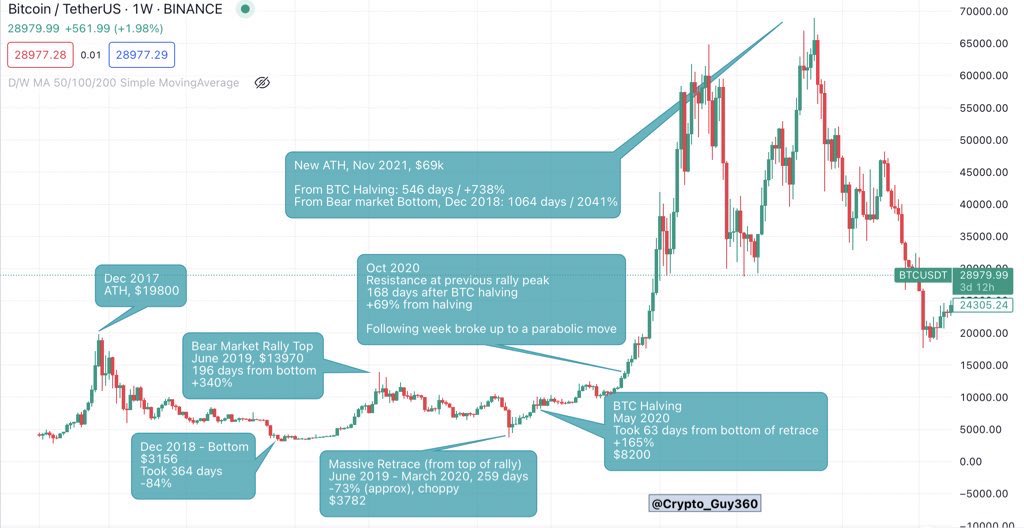𝗦𝗔𝗩𝗘 - 𝗜𝗡𝗩𝗘𝗦𝗧 - 𝗖𝗛𝗔𝗡𝗚𝗘 𝗬𝗢𝗨𝗥 𝗟𝗜𝗙𝗘💰🪴
Young and not investing? That’s a plan to FAIL!
Think you don’t have money to invest?
Learn how to save money then use that savings into investments.
🧵 10 tips how to save and change your game!
Young and not investing? That’s a plan to FAIL!
Think you don’t have money to invest?
Learn how to save money then use that savings into investments.
🧵 10 tips how to save and change your game!

Create a budget
Know your income and expenses, and set a budget for yourself. Prioritize your needs (e.g. rent, utilities, groceries) and allocate money for discretionary spending accordingly.
Write it down and keep a visual record.
Know your income and expenses, and set a budget for yourself. Prioritize your needs (e.g. rent, utilities, groceries) and allocate money for discretionary spending accordingly.
Write it down and keep a visual record.
Track your expenses
Keep track of every penny you spend. Use a budgeting app or a spreadsheet to help you categorize your expenses and see where your money is going.
Visualize your expenses and savings. It’s powerful.
Keep track of every penny you spend. Use a budgeting app or a spreadsheet to help you categorize your expenses and see where your money is going.
Visualize your expenses and savings. It’s powerful.
Avoid impulse purchases
Before making a purchase, ask yourself if you really need it. Avoid making impulse purchases, especially for big ticket items. Take time to think it over and do your research before making a decision.
Ask yourself - Do I need it or want it?
Wants can… twitter.com/i/web/status/1…
Before making a purchase, ask yourself if you really need it. Avoid making impulse purchases, especially for big ticket items. Take time to think it over and do your research before making a decision.
Ask yourself - Do I need it or want it?
Wants can… twitter.com/i/web/status/1…
Make a shopping list
When going to the grocery store or shopping for other essentials, make a list and stick to it. This will help you avoid buying unnecessary items and save money.
Be organized and systematic when shopping. Stick to the list, don’t deviate.
When going to the grocery store or shopping for other essentials, make a list and stick to it. This will help you avoid buying unnecessary items and save money.
Be organized and systematic when shopping. Stick to the list, don’t deviate.
Use coupons and promo codes
Look for coupons and promo codes for the items you need to buy. You can find them online, in newspapers, magazines or social media. These small discounts can add up over time.
Look for coupons and promo codes for the items you need to buy. You can find them online, in newspapers, magazines or social media. These small discounts can add up over time.
Cut back on subscriptions
Take a look at your monthly subscriptions and cancel any that you don't use or don't need. This includes streaming services, gym memberships, and magazine subscriptions.
You can even downgrade subscriptions or find cheaper alternatives
Take a look at your monthly subscriptions and cancel any that you don't use or don't need. This includes streaming services, gym memberships, and magazine subscriptions.
You can even downgrade subscriptions or find cheaper alternatives
Cook at home
Eating out can be expensive. Try cooking at home more often and bringing your lunch to work. You'll save money and have more control over the ingredients in your meals.
Eating out can be expensive. Try cooking at home more often and bringing your lunch to work. You'll save money and have more control over the ingredients in your meals.
Avoid going out too much
We all need to chill out with friends but keep it limited. Drinking, eating, snacking, going to the movies, bars and clubs all add up - BIG TIME!
Cut back a little and find alternative ways to socialize without having to spend money.
We all need to chill out with friends but keep it limited. Drinking, eating, snacking, going to the movies, bars and clubs all add up - BIG TIME!
Cut back a little and find alternative ways to socialize without having to spend money.
Avoid debt
Avoid high interest debt like credit card debt. If you do need to take out a loan, do your research and shop around for the best interest rates.
Avoid high interest debt like credit card debt. If you do need to take out a loan, do your research and shop around for the best interest rates.
Consider second hand purchases
For big ticket items like furniture or electronics, consider buying used instead of new.
For big ticket items like furniture or electronics, consider buying used instead of new.
Stay motivated
Saving money can be challenging, but it's important to stay motivated. Set achievable goals for yourself. Remember that every small step you take towards saving money will add up over time.
Saving money can be challenging, but it's important to stay motivated. Set achievable goals for yourself. Remember that every small step you take towards saving money will add up over time.
By following these tips and making a conscious effort to save money, you can avoid spending aimlessly and prioritize your financial goals.
You then will find that you have extra money that you thought you never had and that can be used towards investments.
You then will find that you have extra money that you thought you never had and that can be used towards investments.
How and where to invest…
I’ll share that in another 🧵
Make sure to follow and turn on notifications so you don’t miss out.
#financialeducation #FinancialFreedom #financialliteracy #financialplanning
I’ll share that in another 🧵
Make sure to follow and turn on notifications so you don’t miss out.
#financialeducation #FinancialFreedom #financialliteracy #financialplanning
• • •
Missing some Tweet in this thread? You can try to
force a refresh

 Read on Twitter
Read on Twitter








